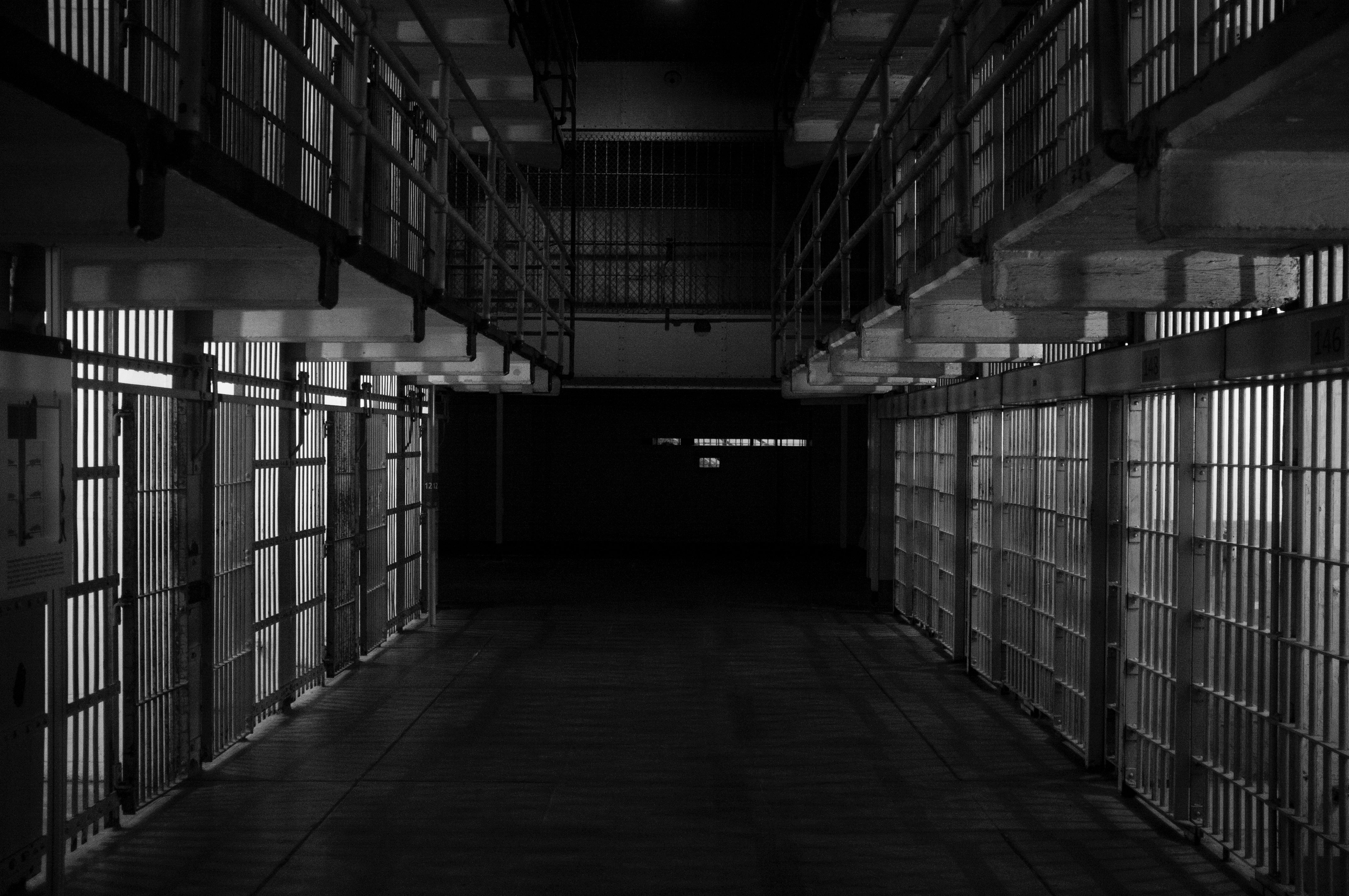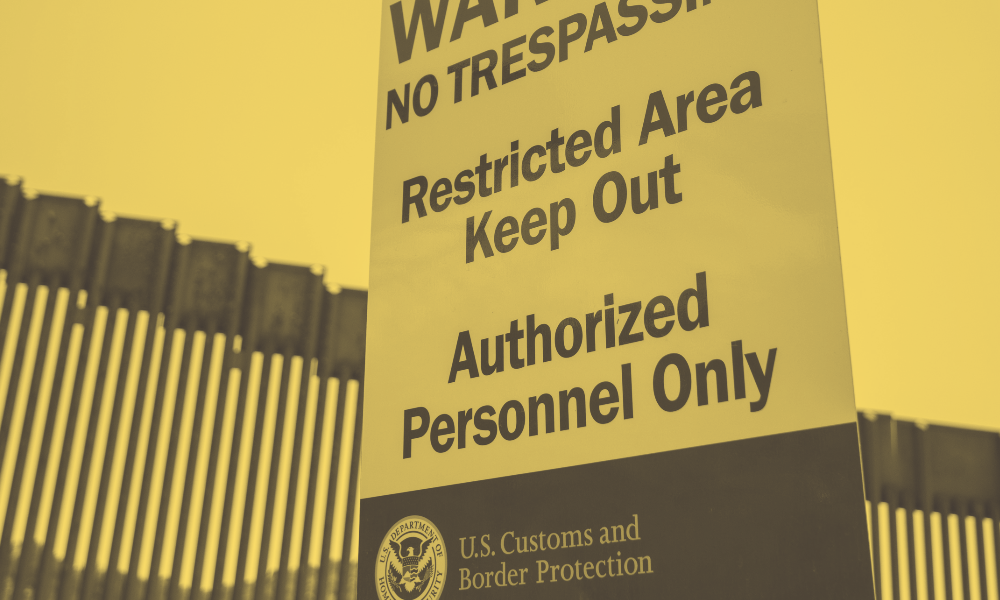A private prison company secured an agreement from U.S. Immigration and Customs Enforcement that guaranteed it nearly $2 million a month during the pandemic, shortly after the company threatened to end its government contract because of low detainee populations.
The temporary agreement, which went into effect Sept. 1, 2020, guaranteed that ICE would pay Management & Training Corporation (MTC) for 500 beds at the Otero County Processing Center (OCPC), regardless of how many people were detained there, according to documents newly obtained by the ACLU of New Mexico.
“The minimum provisions point to how, at a fundamental level, the arrangement between MTC and the government puts profits first and foremost,” said Rebecca Sheff, senior staff attorney at the ACLU of New Mexico. “They’re seeking to lock in a certain level of guaranteed profitability of the detention center.”
MTC also received a significant pay increase on what’s known as a bed rate, the amount ICE pays per day for each detained person. Under its original contract, which is adjusted regularly for inflation, MTC was paid, as of March 2019, $102.34 for detainees 1 through 825.
“The minimum provisions point to how, at a fundamental level, the arrangement between MTC and the government puts profits first and foremost.”
Under the new temporary agreement, obtained by the ACLU of New Mexico via a records request, MTC was paid $126.68 for the first 500 detainees. The company was then paid $89.76 for detainees 501 through 825. Under both agreements, MTC is paid $31.12 for any detainees above 825.
This new agreement meant MTC was guaranteed about $1,926,591 per month. The company did not respond to a request for comment.
Allegra Love, an attorney with the El Paso Immigration Collaborative who has worked with detained migrants at facilities throughout the state, was critical of the agreement. OCPC has been under scrutiny for years, with government investigators, advocates and researchers finding bad food, misuse of solitary confinement, harassment of LGBTQ+ individuals, difficulty accessing attorneys, and more.
“MTC is a predatory corporation with an abysmal record for protecting human rights,” Love said in an email. “They should not be trusted to care for the people in their custody much less be allowed to profit so richly off of it.”
In a statement, Sen. Martin Heinrich said private prisons and immigration detention centers were not an alternative to needed immigration reform. He called for reforms including a pathway to citizenship and ensuring safety and security at the border.
“We can reduce crime while also building a more just criminal justice system,” Heinrich said. “That includes putting an end to corporations profiteering off of incarceration.”
At the time the new agreement for OCPC went into effect, jails and prisons throughout New Mexico were reducing population numbers to combat the spread of COVID-19. Despite that, ICE officials rebuffed offers of help at OCPC from New Mexico health officials, according to the news organization Reveal. At least 561 people at OCPC have tested positive for COVID-19, according to ICE data.
Despite that, public financial documents show that the population at OCPC -- the original reason MTC gave for needing to end its contract -- has been increasing. On May 3, 2021, there were 214 people at OCPC, but by June 6, there were 666 detainees, the most in the past 16 months, according to financial filings from June.
“They should not be trusted to care for the people in their custody much less be allowed to profit so richly off of it.”
Since then, the number of detainees has been between 321 and 634, according to an Oct. 1 financial filing.
Under the new temporary agreement, ICE would’ve paid MTC an estimated $78,240 for its single fullest day, June 6. That’s roughly $10,000 more than what it’s estimated it would’ve paid under the previous contract. On the day with 321 detainees, ICE would’ve paid MTC an estimated $63,340. Under the previous contract, it would’ve paid about $33,000.
During fiscal year 2021, OCPC has had an average daily population of 298 people, according to statistics published by ICE in early October. Under the previous OCPC contract, ICE would’ve paid an estimated $11.1 million for bed space at OCPC. Under the temporary agreement, it paid MTC an estimated $23.1 million, although that figure could be higher because of times where the population at the facility passed the 500-bed minimum.
Neither amount includes money paid to MTC for additional services such as transportation or overtime guards. ICE did not respond to a request for comment.
The temporary agreement between ICE and MTC is due to expire at the end of October. But recent financial filings from US Bank, which oversees the bonds that financed the construction of OCPC, indicate the company is working toward a long-term extension.
MTC “reports that there have been constructive discussions in contracting for a multiple year extension at a rate that would cover 100% of the Debt Service pricing component,” the filing says. Otero budget documents show about $45.2 million are still due between now and 2028 on bonds that financed the construction of the facility.
Sheff said she’s concerned about the negotiations behind closed doors and the potential for guaranteed bed minimums for years to come, which incentivize ICE to detain more people to fill beds they’re already paying for.
“The long-term nature of these contracts is equally troubling because it would tie the hands of not just the government at its current configurations, but far into the future,” she said.
At least one other ICE detention facility in New Mexico, in Torrance County, has a guaranteed bed minimum. That facility, operated by CoreCivic, is paid for at least 714 beds, although in fiscal year 2021 it averaged just 152 daily detainees, according to ICE statistics.
“All of us in New Mexico, no matter where we live, no matter what political party, must pay attention to the details of private detention contracts in our counties,” Love said, “and decide if we want to continue to invite wealthy, extractive, private prison companies into our state to profit off of human suffering.”
Contact Invesitgative Reporter Leonardo Castañeda at [email protected]
Date
Thursday, October 14, 2021 - 11:30amFeatured image


